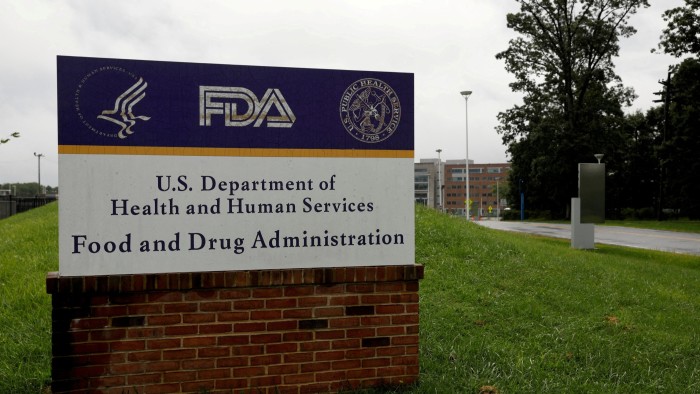Unlock the Editor’s Digest for free
Roula Khalaf, Editor of the FT, selects her favourite stories in this weekly newsletter.
The US Food and Drug Administration has rejected a drug approval application from Zealand Pharma, sending shares in the Danish drugmaker down 10 per cent on Friday.
The FDA has asked the company to do another late-stage trial for glepaglutide — which Zealand is developing for a rare condition called short bowel syndrome — to confirm the right dose for patients. Zealand said it would start this trial next year.
David Kendall, Zealand’s chief medical officer, said the company was “disappointed” with the FDA’s decision. “We remain confident that the data showed robust and compelling evidence of both efficacy and safety for glepaglutide treatment,” he said.
He added that Zealand expected to proceed with its current plans to file for approval in the EU next year.
Shares in Zealand were down 10 per cent at DKr679.50 in mid-morning trading in Denmark. The stock has soared more than 80 per cent in the past year, as investors hoped the company’s potential obesity drugs could take a slice of the growing market for weight loss drugs. Earlier this year, it raised $1bn in a share offering.
The company has partnered with German pharmaceutical company Boehringer Ingelheim on a drug candidate that is in phase 3 trials, targeting weight loss and a form of liver disease. It also has three earlier stage potential drugs for obesity.
Adam Steensberg, Zealand’s chief executive, told the Financial Times at the start of this year that he believed other drugmakers could still win the race for the obesity market, even though Eli Lilly and Novo Nordisk have a head start.
The FDA’s rejection of glepaglutide is the company’s second setback with the agency. In October, the FDA rejected Zealand’s application for approval for a drug for a rare genetic disorder that causes low blood sugar because of problems with the inspection of a third-party manufacturing facility.
Julian Harrison, an analyst at BTIG, said the FDA’s decision to issue a “complete response letter”, rejecting the application for glepaglutide, looked “unusual and unexpected”.
He wrote in a note that the decision appeared to be based on patients receiving a once-weekly dose not meeting the bar for statistical significance, even though Zealand is pursuing a twice-weekly dose. BTIG cut its price target from DKr1,100 to DKr1,050 ($146).
Read the full article here

